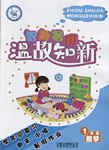题目内容
66.After staying abroad for several months, she is happy to be back in f surroundings.
67.In common with other cities, Shaoxing has its l newspaper, Shaoxing Daily.
68.I have many happy m of schooldays. I can still remember everything ten years ago.
69.The young couple are always q with each other about the housework.
70.It is widely believed that the Chinese athletes will win more gold m in the 2008 Olympic Games than ever.
71.Although he was s ill, Mr. Henry insisted on going to school to give classes.
72.My brother used to be a s . It is 10 years since he was in the army.
73.The t made a very beautiful dress for me to my own measure.
74.The chemistry teacher gave a clear e to the students about the difficulty.
75.The policeman asked the young man to a to the old man for his bad behavior.
66.familiar 67.local 68.memories 69.quarrelling
70.medals 71.seriously 72.soldier 73.tailor
74.explanation 75.apologize

 智趣暑假温故知新系列答案
智趣暑假温故知新系列答案 英语小英雄天天默写系列答案
英语小英雄天天默写系列答案This week was busier than usual, and I was very tired today. All I wanted to do was to go home and enjoy a bowl of good hot soup.
But when I saw my daughter’s car, I knew that it was Bryan’s night. Since his parents separated, I had tried to have my six-year-old grandson spend a few hours with me at least once a week. I had always tried to make it a special time for him. We did many interesting things; Bryan loved all these activities, and so did I. But today I had to give up our evening. I said how tired I was feeling. “Bryan, I’m sorry. Tonight I don’t feel like having fun or playing games. We’ll have our night together some other time.” I saw the sadness in Bryan’s eyes. He said, “I like soup, Grandma.” I knew he meant “Please don’t send me away. Please let me stay.” I saw the shadow (阴影) in Bryan’s eyes. Something else was changing. Maybe he thought I wouldn’t want to have him come any more — not tonight, not next week, not ever. Finally, I said OK. I was glad to see his eyes light up. After I put the soup on the stove (炉子) and turned on the TV, I fell asleep.
When I woke up, there was a coat over my legs, and the soup was gone. Bryan was on the floor, reading a coloring book and watching a television show at the same time. The poor boy must have been so bored (烦躁的)! When he found I was awake, he ran over and gave me a big hug. “I love you, Grandma,” he said. “Haven’t we had a nice time together?” His big smile and happy eyes told me that this time he meant exactly what he was saying. That was the keyword — together. We had done nothing exciting or special. But we were together.
【小题1】What does the underlined part (in Paragraph 2) mean?
| A.It was time to cook hot soup for Bryan that night. |
| B.This was the evening when Bryan stayed with his grandma. |
| C.Bryan would have a good rest that night. |
| D.Bryan would stay with his parents that night. |
| A.She was too tired to have fun or play games with him. |
| B.She was sick and wanted to have a good rest. |
| C.She was too busy and had to work overtime that night. |
| D.She had to prepare soup for the whole family. |
| A.1. | B.2. | C.3. | D.4. |
| A.Bryan’s parents separated so he had to live with his grandma |
| B.Bryan was sad that night because his grandma didn’t play with him |
| C.the author wouldn’t want to stay with her grandson any more |
| D.the author and her grandson loved each other very much |
As we all know, language is always changing. In a society where life continues year after year with few changes, the language does not change either. The earliest known languages had difficult grammar but a small, limited vocabulary. Over the century, the grammar changed, and the vocabulary grew. For example, the English and Spanish people who came to America during the sixteenth century gave names to all the new plants and animals they found. In this way, hundreds of new words were introduced into English and Spanish vocabularies. Today life is changing very fast, and language is changing fast too.
There are several major(主要) language families in the world. Some scientists say there are nine main families, but other scientists divide them differently. The languages in each family are connected, and scientists think that they came from the same parent language. About 3 percent of the people in the world speak languages that are not in these major families.
【小题1】The early language had ________.
| A.a lot of problems |
| B.words and easy grammar |
| C.words but no grammar |
| D.grammar but not many words |
| A.stay exactly the same |
| B.change a great deal |
| C.change only a little |
| D.ask more words and drop some grammar |
| A.languages change fast |
| B.languages really don't want to change |
| C.language really with changes in society |
| D.Spanish and English change |